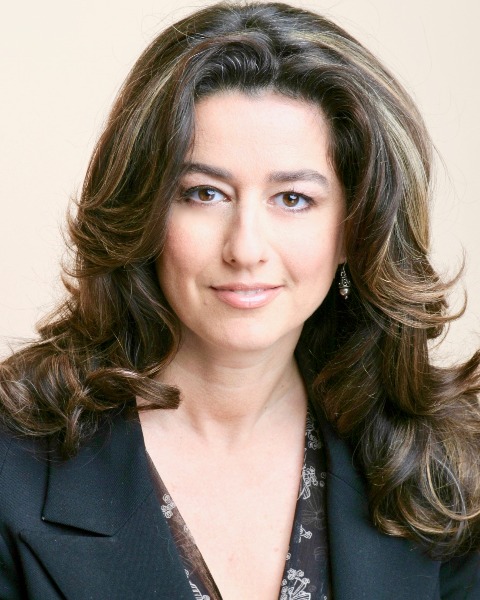Back
Poster Session A - Sunday Afternoon
A0616 - Gut Microbiome 6 Months After Fecal Microbiota Transplant (FMT) in an Adolescent With Autism Using Familial Donor
Sunday, October 23, 2022
5:00 PM – 7:00 PM ET
Location: Crown Ballroom

Sabine Hazan, MD
ProgenaBiome, LLC
VENTURA, CA
Presenting Author(s)
Sabine Hazan, MD1, Sonya Dave, PhD2, Thomas J. Borody, MD, PhD, DSc, FACG3
1ProgenaBiome, LLC, Ventura, CA; 2North End Advisory, Smyrna, GA; 3Centre for Digestive Diseases, Five Dock, New South Wales, Australia
Introduction: Autism affects 1/40 to 1/100 children in America and worldwide. Autism Spectrum disorder (ASD) is a varied set of neurobehavioral changes characterized by distinct, repetitive behaviors along with impaired socialization and communication. Several studies point to gut dysbiosis present in these children, leading to intestinal microbiota transplant as a therapeutic option. Studies by Kang, Adams, and Borody et al. showed a 50% regression of neurological symptoms in children 2 years post-transplant. Cases show more improvement in younger patients, suggesting early treatment with a better donor, such as a family member, especially in the older ASD patients.
Case Description/Methods: Fecal matter from a healthy sibling (15 year old sister as donor) was infused via colonoscopy into the subject’s gastrointestinal tract following a protocol approved by FDA as an Investigational New Drug. This study was IRB approved.
Fecal samples were collected at baseline (patient and donor) and then from the patient at week 5, and month 3 and 6. Metagenomic Next Generation Sequencing was performed on fecal samples, where DNA samples were extracted and normalized for library downstream fabrication using Shotgun methodology.
There were marked improvements in the patients’ gut microbiome post-transplant. Compared to baseline, there was a decrease in relative abundance of phylum Proteobacteria from 49% to 1.3%. Over the 6 months a significant increase was noted post-transplant in phylum Actinobacteria (0.012% to 2.5%) and specifically genus bifidobacteria ( 0.0% to 1.9%). Species Lactobacillus animalis, absent in the donor, disappeared in the recipient (from 58% to 0.0%) after transplant. Shannon Index of bacterial diversity significantly improved (2.2 to 6.2) almost matching donor who was 6.7.
Clinically, the patient progressed from aggressive to calm and said his first 2 words “mama” and “baba” after 1 month. Childhood Autism Rating Scale (CARS) testing is underway, but given recent nature of the implant and subject’s age (19 yrs.) substantial changes are not yet expected.
Discussion: This is the first case demonstrating implantation of microbes from a familial donor (sister) to an adolescent patient (brother) with Autism. Although early in clinical assessment, this case demonstrates disappearance of an overabundant microbe (L. Animalis) and restoration of phyla and species missing or in low numbers in the autistic patient when compared to his sister.
Disclosures:
Sabine Hazan, MD1, Sonya Dave, PhD2, Thomas J. Borody, MD, PhD, DSc, FACG3. A0616 - Gut Microbiome 6 Months After Fecal Microbiota Transplant (FMT) in an Adolescent With Autism Using Familial Donor, ACG 2022 Annual Scientific Meeting Abstracts. Charlotte, NC: American College of Gastroenterology.
1ProgenaBiome, LLC, Ventura, CA; 2North End Advisory, Smyrna, GA; 3Centre for Digestive Diseases, Five Dock, New South Wales, Australia
Introduction: Autism affects 1/40 to 1/100 children in America and worldwide. Autism Spectrum disorder (ASD) is a varied set of neurobehavioral changes characterized by distinct, repetitive behaviors along with impaired socialization and communication. Several studies point to gut dysbiosis present in these children, leading to intestinal microbiota transplant as a therapeutic option. Studies by Kang, Adams, and Borody et al. showed a 50% regression of neurological symptoms in children 2 years post-transplant. Cases show more improvement in younger patients, suggesting early treatment with a better donor, such as a family member, especially in the older ASD patients.
Case Description/Methods: Fecal matter from a healthy sibling (15 year old sister as donor) was infused via colonoscopy into the subject’s gastrointestinal tract following a protocol approved by FDA as an Investigational New Drug. This study was IRB approved.
Fecal samples were collected at baseline (patient and donor) and then from the patient at week 5, and month 3 and 6. Metagenomic Next Generation Sequencing was performed on fecal samples, where DNA samples were extracted and normalized for library downstream fabrication using Shotgun methodology.
There were marked improvements in the patients’ gut microbiome post-transplant. Compared to baseline, there was a decrease in relative abundance of phylum Proteobacteria from 49% to 1.3%. Over the 6 months a significant increase was noted post-transplant in phylum Actinobacteria (0.012% to 2.5%) and specifically genus bifidobacteria ( 0.0% to 1.9%). Species Lactobacillus animalis, absent in the donor, disappeared in the recipient (from 58% to 0.0%) after transplant. Shannon Index of bacterial diversity significantly improved (2.2 to 6.2) almost matching donor who was 6.7.
Clinically, the patient progressed from aggressive to calm and said his first 2 words “mama” and “baba” after 1 month. Childhood Autism Rating Scale (CARS) testing is underway, but given recent nature of the implant and subject’s age (19 yrs.) substantial changes are not yet expected.
Discussion: This is the first case demonstrating implantation of microbes from a familial donor (sister) to an adolescent patient (brother) with Autism. Although early in clinical assessment, this case demonstrates disappearance of an overabundant microbe (L. Animalis) and restoration of phyla and species missing or in low numbers in the autistic patient when compared to his sister.
Disclosures:
Sabine Hazan indicated no relevant financial relationships.
Sonya Dave: McKesson Specialty Health / Ontada – Employee.
Thomas Borody: Axent medical Pty. Ltd – Advisory Committee/Board Member. Centre for Digestive Diseases – Advisory Committee/Board Member, Consultant, Employee, Grant/Research Support, Intellectual Property/Patents, Ownership interest, Owner/Ownership Interest, Stock-privately held company. Finch Therapeutics – Advisory Committee/Board Member, Intellectual Property/Patents, Stock-publicly held company(excluding mutual/index funds). Topelia Therapeutics – Advisor or Review Panel Member, Intellectual Property/Patents.
Sabine Hazan, MD1, Sonya Dave, PhD2, Thomas J. Borody, MD, PhD, DSc, FACG3. A0616 - Gut Microbiome 6 Months After Fecal Microbiota Transplant (FMT) in an Adolescent With Autism Using Familial Donor, ACG 2022 Annual Scientific Meeting Abstracts. Charlotte, NC: American College of Gastroenterology.
